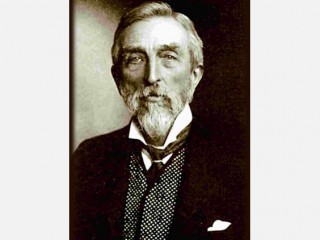
Charles Booth biography
Date of birth : 1840-03-30
Date of death : 1916-11-23
Birthplace : Liverpool, England
Nationality : English
Category : Science and Technology
Last modified : 2011-02-09
Credited as : Social scientist, official Poor Law Commission , Poverty, Industry and Religious Influences series
The English social scientist Charles Booth conducted a massive pioneering investigation of living and working conditions in London.
Charles Booth was born in Liverpool on March 30, 1840, into a family of merchants and shipowners. He early became a successful shipowner and in 1871 married the niece of the author T. B. Macaulay. After a serious illness Booth settled in London and turned his attention to the condition of the working classes. He was struck by the abundance of theoretical proposals for the relief of poverty and the absence of accurate quantitative evidence. In his view, the first need was to obtain facts, both "to prevent the adoption of false remedies" and to provide materials for others "to find remedies for the evils which exist."
In 1886 Booth began his survey of East London, at that time probably the area of greatest destitution in England. He and his assistants compiled 46 books of data, with family-by-family notations of economic level and occupation. He published a one-volume condensation of this information in 1889. In 1891 he produced a more general report on the rest of London. He worked through the 1890s with the help of the 1891 census, and his final text, in 17 volumes, appeared in 1902-1903 under the general title Life and Labour of the People in London. Booth organized this work into three series: "Poverty", arranged geographically; "Industry", categorized into 16 trades; and "Religious Influences".
Booth's most important discovery was that 30 percent of the million families in London lived at or below the bare minimum level for independent subsistence. His facts appeared, on one hand, to disprove the Marxist presumption of a massive, destitute proletariat and, on the other hand, to show the futility of private charity and the need for a program of welfare legislation.
Although Booth avoided specific recommendations, he concluded that the state must intervene to preserve capitalist competition by the "removal of this very poor class out of the daily struggle for existence." He envisaged a dual system of individualism and socialism under which Britain could "dispense with any socialistic interference in the lives of all [but the poor]." Booth's work did much to lay a statistical basis for the structure of the welfare state; old-age pensions, health and unemployment insurance, and minimum wages were all instituted between 1908 and 1911.
Booth served on the official Poor Law Commission of 1905-1909, in which his views were essentially conservative. He died on Nov. 23, 1916. Beatrice Webb, his cousin and coworker, called him "the boldest pioneer …, and the achiever of the greatest results, in the methodology of the social sciences of the nineteenth century."
Aside from Booth's own volumes, there are accounts of his life and work by his wife, Mary Macaulay Booth, in Charles Booth: A Memoir (1918), and by Beatrice Webb in My Apprenticeship (1926; 2d ed. 1946). Albert Fried and Richard Elman, eds., Charles Booth's London (1968), is a volume of selections from Booth's survey with a useful biographical introduction.
















